‘We felt this was something that we simply could not afford not to do.’
When the Government announced the largest vaccination plan in British history – and an accompanying rigid, largely age-based, criteria for delivering jabs – Brighton GP Tim Worthley and his colleagues knew they had to make decisions that would push the limits, but would protect the most vulnerable people in their communities.
Dr Worthley (pictured above), a GP at Arch Health, a GP surgery for people experiencing homelessness or living in temporary accommodation, used his relationships as a primary care network clinical director to source vaccines and his team set about meeting people where they were staying and giving the street homeless, and other groups like travellers, access to jabs with a mobile unit which they drove around the city.
During a four-month period the team have given nearly 900 first jabs and more than 650 second doses.
That work has been important because these are people particularly vulnerable to this disease: in the UK the life expectancy is 45 for men and 43 for women who are homeless, homeless patients in their 30s and 40s often have the health patterns and morbidities of people decades older, and people live in cramped accommodation or vulnerability on the streets.
It is our responsibility to challenge policies which impact people’s livesDr Chauhan, Oldham GP
Advanced nurse practitioner at Arch, Hannah Bishop, says: ‘It’s been really good. This has enabled us to be much more opportunistic and accessible for a group of people who are extremely vulnerable.’
Clearly the project has been successful, but the conditions in which Dr Worthley and his team had to work were dispiriting.
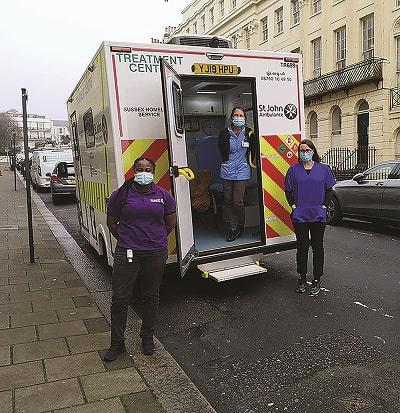 IN THE FIELD: The Arch Health vaccination team in the community
IN THE FIELD: The Arch Health vaccination team in the community
‘The frustrating thing is that we had to do what we were doing on the sly – almost like an underground movement,’ he says.
The team had to underwrite the costs of an expensive process as a small organisation, be particularly careful with their communications, fearing the ‘wrath of national bodies’ and come up with their own business proposal and hire staff.
Until commissioners and local authorities formally supported the project Arch was operating at ‘significant financial risk’.
Dr Worthley hopes to reach up to 2,000 patients in total and new strategies, including ‘intensive work’ with local housing officers to get better access to those in emergency accommodation and planning co-delivery of an ambitious and complicated flu and booster COVID programme through the autumn, are being developed.
Most vulnerable
Two hundred miles north in Oldham, GP and local councillor Zahid Chauhan OBE felt compelled to make similar decisions.
In his role as the local authority’s cabinet member for health and social care Dr Chauhan decided to vaccinate ‘hundreds’ of the homeless at soup kitchens and shelters. Dr Chauhan believes his patients were the first homeless people in the world to be given COVID-19 vaccines.
He says: ‘I believe as a clinician it is our responsibility to challenge policies which impact on people’s lives. If you don’t vaccinate homeless people they are a source of the spread of infection and they are at increased risk of dying. You also create extra problems for the health service.’
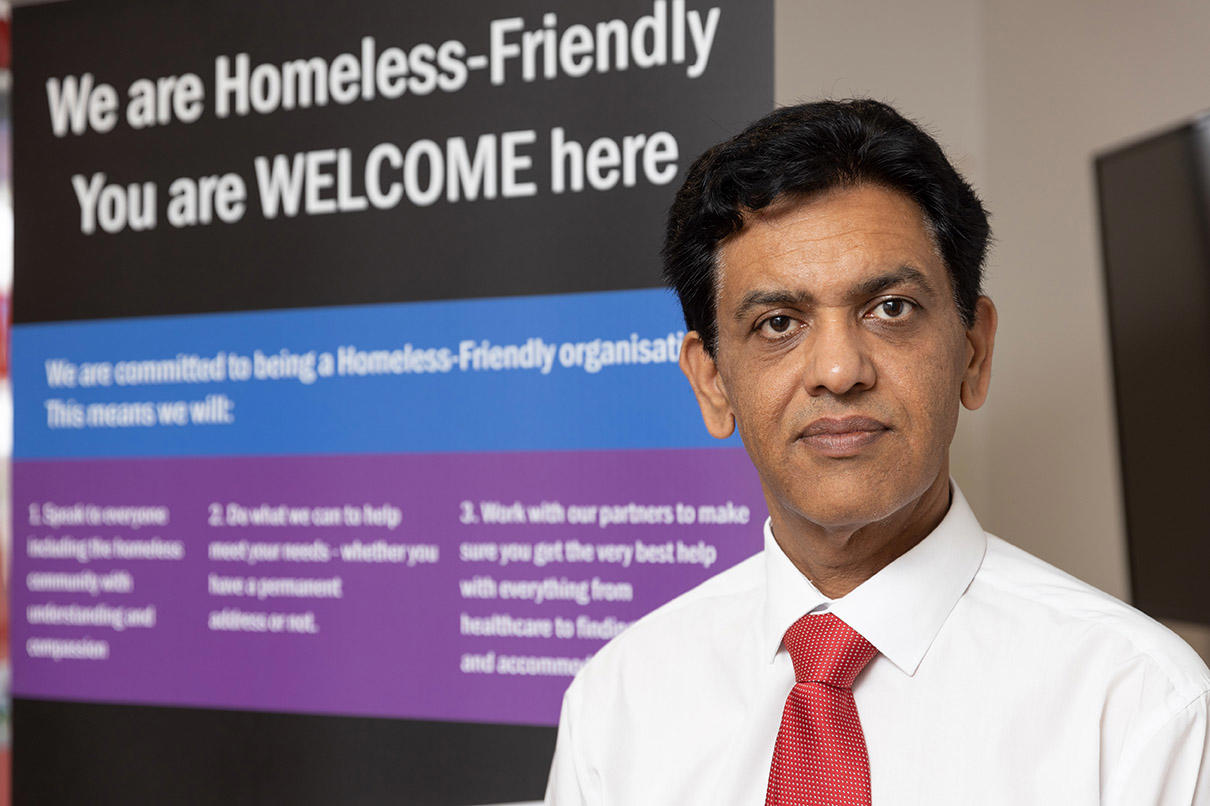 CHAUHAN: His homeless patients were perhaps the first in the world to receive the COVID vaccination
CHAUHAN: His homeless patients were perhaps the first in the world to receive the COVID vaccination
While homeless patients in Oldham and Brighton have strong advocates, this is not the case everywhere.
In many parts of the country the people who find health services the most difficult to access – homeless people, undocumented migrants, asylum seekers, travellers or a wide range of other groups – lack those voices of support.
Doctors are concerned the UK’s vaccination programmes risk missing these people and is undermined by a society and a health system which labels them as ‘hard-to-reach’ rather than simply reaching out.
Access problems
James Matheson, chair of the Royal College of GPs’ health inequalities group, says: ‘These people aren’t hard to reach – they are the people you step over in the street on your way to work.’
The reasons for difficulty in accessing health services are incredibly complex.
Those living in the UK with a lack of immigration documentation often fear being reported and raided due to the politics of the ‘hostile environment’, across the country outreach services are patchy and under-resourced, and even the very structure of funding of services means providing care for complex patients can be costly.
They are the people you step over in the street on your way to workDr Matheson, chair of RCGPs' health inequalities group
There are also pressures caused by austerity politics and many doctors are concerned the brutal impact of trauma is not understood.
As Dr Worthley says, many people are ‘let down by the state from the moment of birth onwards’. In many parts of the country barriers to healthcare remain problematic, and this becomes an even greater problem when vaccination so often seems to rely on GP registration.
Research by the Bureau of Investigative Journalism last month found less than a quarter of GP practices would be willing to register a patient without ID or proof of address.
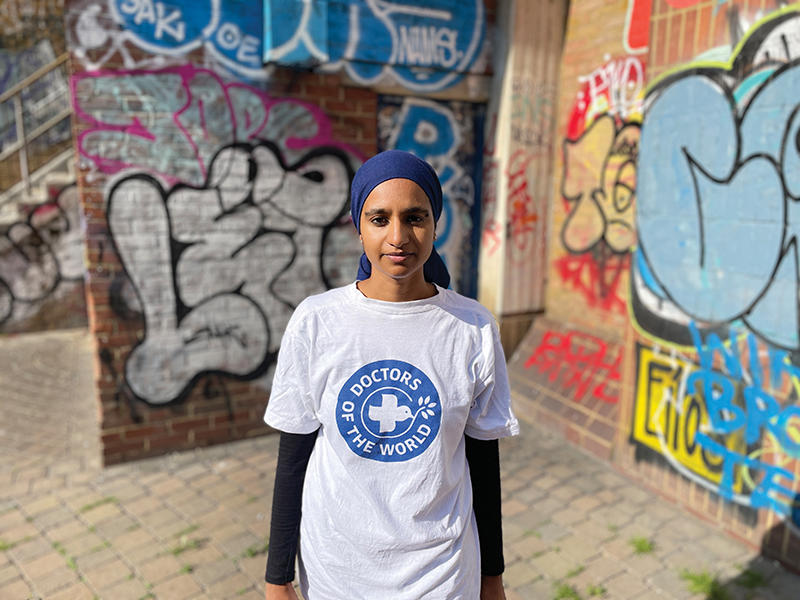 SHEIK: Relationships need to be established with people on the fringes of society
SHEIK: Relationships need to be established with people on the fringes of society
GP trainee Kitty Worthing has been researching the problem, including interviewing primary care staff, and says there are three main issues: Time-consuming NHS digital infrastructure demanding information about patients, primary care staff not feeling supported should they be embroiled in an issue like identity fraud and a degree of xenophobia and racism.
There are organisations trying to drive change. The BMA supports the Safe Surgeries initiative, which is a ‘toolkit’ developed by DOTW (Doctors of the World) – a charity which seeks to help reduce the barriers to healthcare for vulnerable people and undocumented migrants.
The toolkit aims to make practices aware of the guidance and rules – that no patient should be turned away regardless of whether they have a proof of ID, address or immigration status.
Tackling distrust
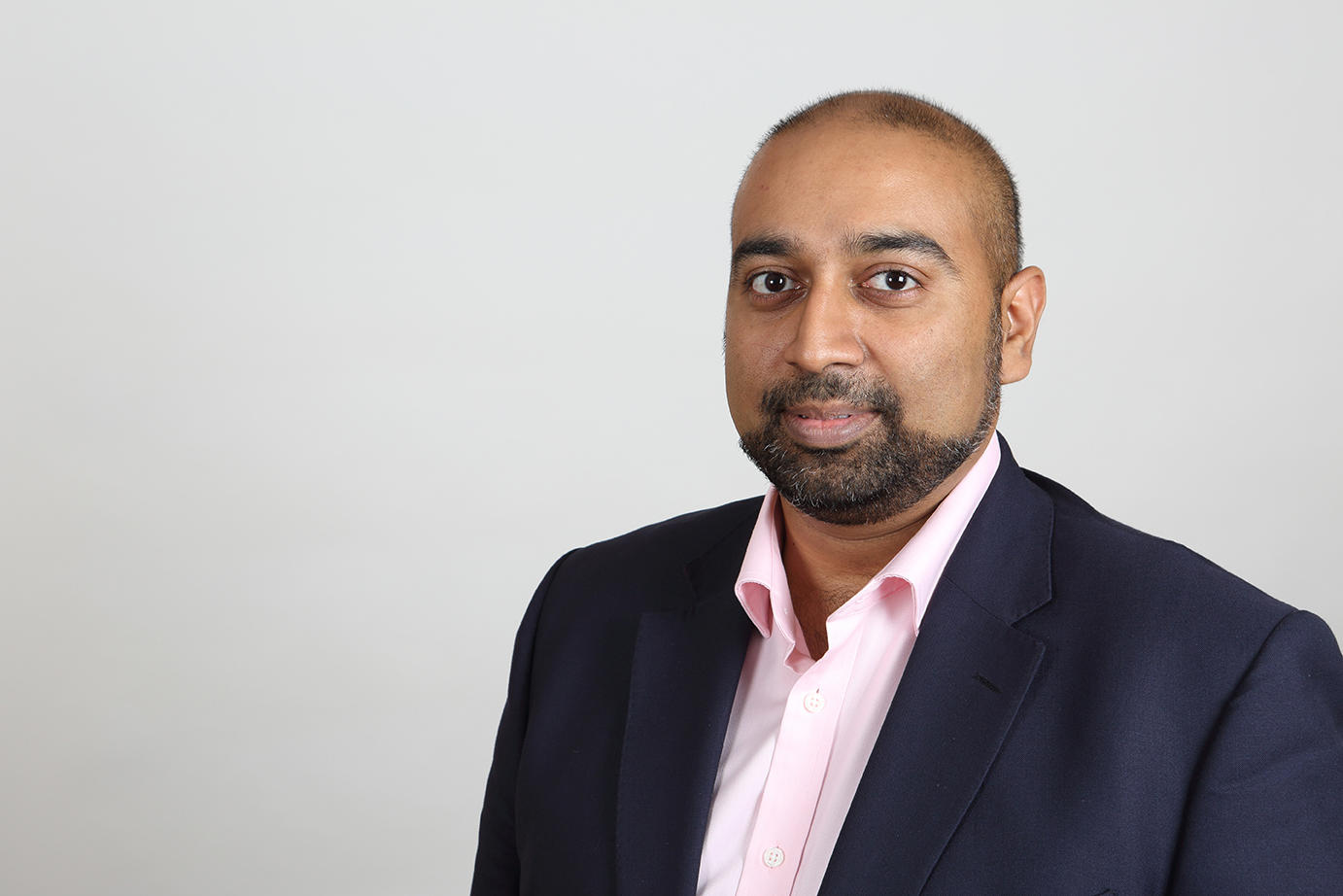 KASARANENI: ‘Nobody should [face] barriers when they are trying to access vaccinations’
KASARANENI: ‘Nobody should [face] barriers when they are trying to access vaccinations’
Krishna Kasaraneni, a member of the BMA GPs committee executive team, says: ‘Nobody should have barriers in front of them when they are trying to access vaccinations in the current climate. Everybody is entitled to free GP services at the point of need. Irrespective of their immigration status they should be able to access vaccination as well as the wider primary care services available to them.’
Fatima Sheik is a GP in south-east London and also works for DOTW. Dr Sheik has two roles with DOTW; one aiming to promote vaccine confidence and the other being involved in outreach offering the vaccine in asylum seeker hotels and in a mobile clinic van. The latter has included offering the COVID-19 vaccine from the mobile clinic.
There is often such a lack of trust in both healthcare professionals and the system in generalDr Sheik, Peckham GP
She says: ‘In this population there is often such a lack of trust in both healthcare professionals and the system in general. Often we would go to a place and only one person would be keen to take the vaccine. We are seeing in some circumstances people who feel very distressed.
'In one location someone said, “I don’t like people with a lanyard” and escorted me out. I think that is quite understandable. Really the vaccine should be being delivered by people who are already known to and trusted by patients. Engaging communities and building real trust is of vital importance.’
Senior doctors told The Doctor they privately petitioned Public Health England and NHS England to expedite vaccination to people often excluded from healthcare who were at greater risk of infection and death.
They said those pleas were ignored in the guidance published by the JCVI – despite official PHE documents making a strong case for prioritising people in these groups.
It’s not a personal choice people are making to hide away or be distrustful or isolatedDr Worthley, Brighton GP
One doctor described the process as ‘strange and unpleasant’.
In addition, The Doctor understands that some staff who took part in group sessions sharing success stories of outreach with the COVID-19 vaccine felt such fear of hostility from decision makers that they asked for their names and places of work to be removed from the minutes of meetings.
And one GP practice received a letter praising their outreach work during the same week that they received one which they felt threatened them to ‘get in line’ with the set national guidelines.
Dr Matheson says: ‘We were worried from the start the vaccination process was going to worsen inequalities from COVID-19 and that appears to have been the case.’
Ease of use
When it comes to health inequalities and access to healthcare the vaccination programme seems to have doubled down on existing problems: Those with the worst health are largely left to become unhealthier and those with the least access are frozen out further.
So what needs to change? ‘It’s really about a fundamental change in thinking,’ Dr Matheson says. ‘We have some brilliant health services set up but they are all set up for the convenience of the people delivering them rather than those accessing them.’
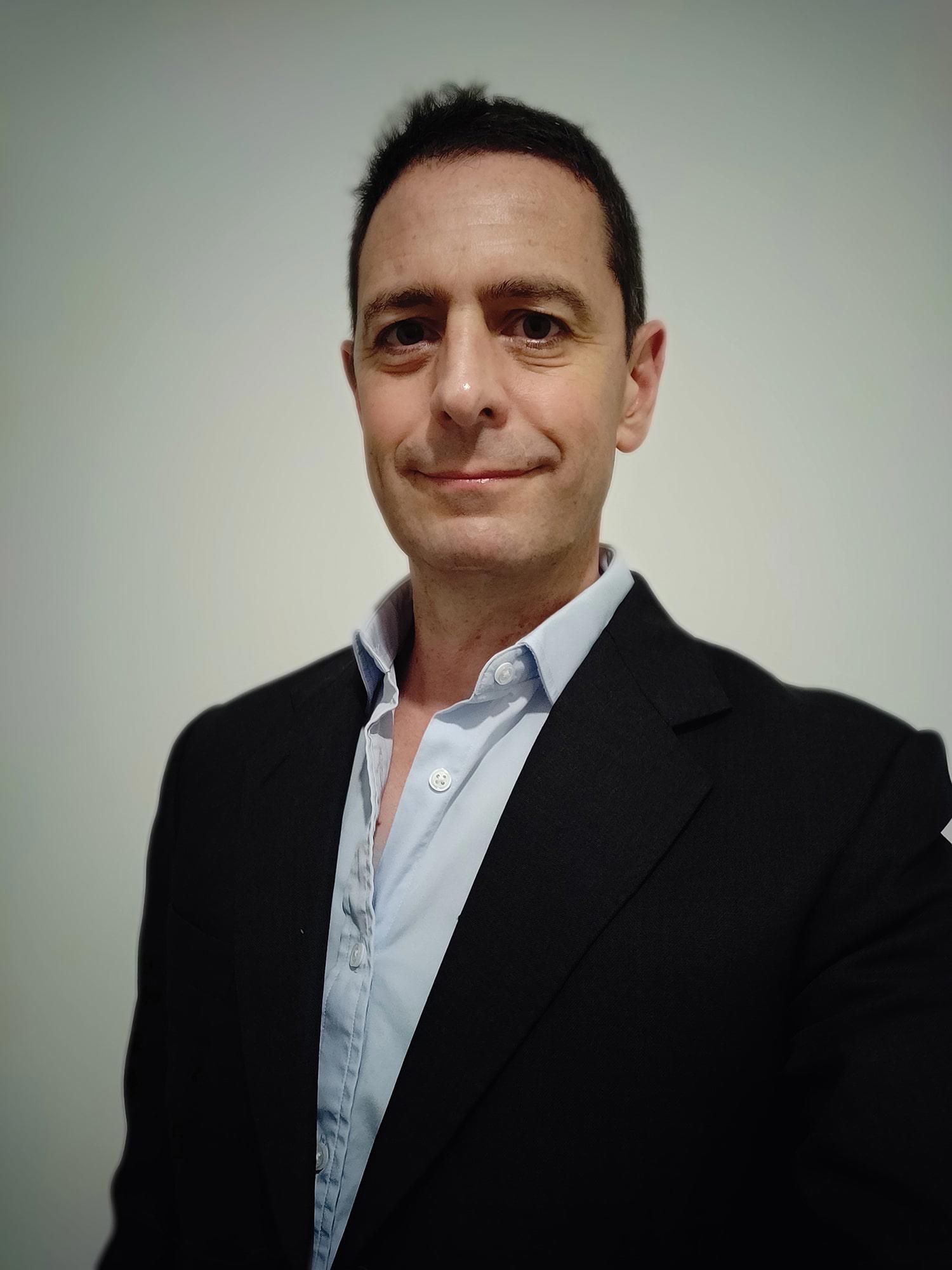 MATHESON: 'These people aren't hard to reach'
MATHESON: 'These people aren't hard to reach'
Dr Worthley says he could describe a ‘utopia’ but instead outlines simple but fundamental changes required: Accommodation fit for human habitation where people don’t have to ‘fight for the right to exist’, proper resourcing for complex patients through the funding and integration of primary care, mental health, community services and outreach, and these sorts of services spread across the country – not just in the pockets where people have the energy to fight daily battles for these groups of patients.
And for Dr Worthing, when it comes to undocumented migrants, there are two major changes required. Firstly, the NHS needs a clear firewall in place to stop government access to patient data.
Without that the majority of patients will never feel secure in accessing care. And, secondly, an end to any sense that the health system is hostile. ‘You can’t ask people to take an exceptional risk to allow them to access healthcare,’ she says.
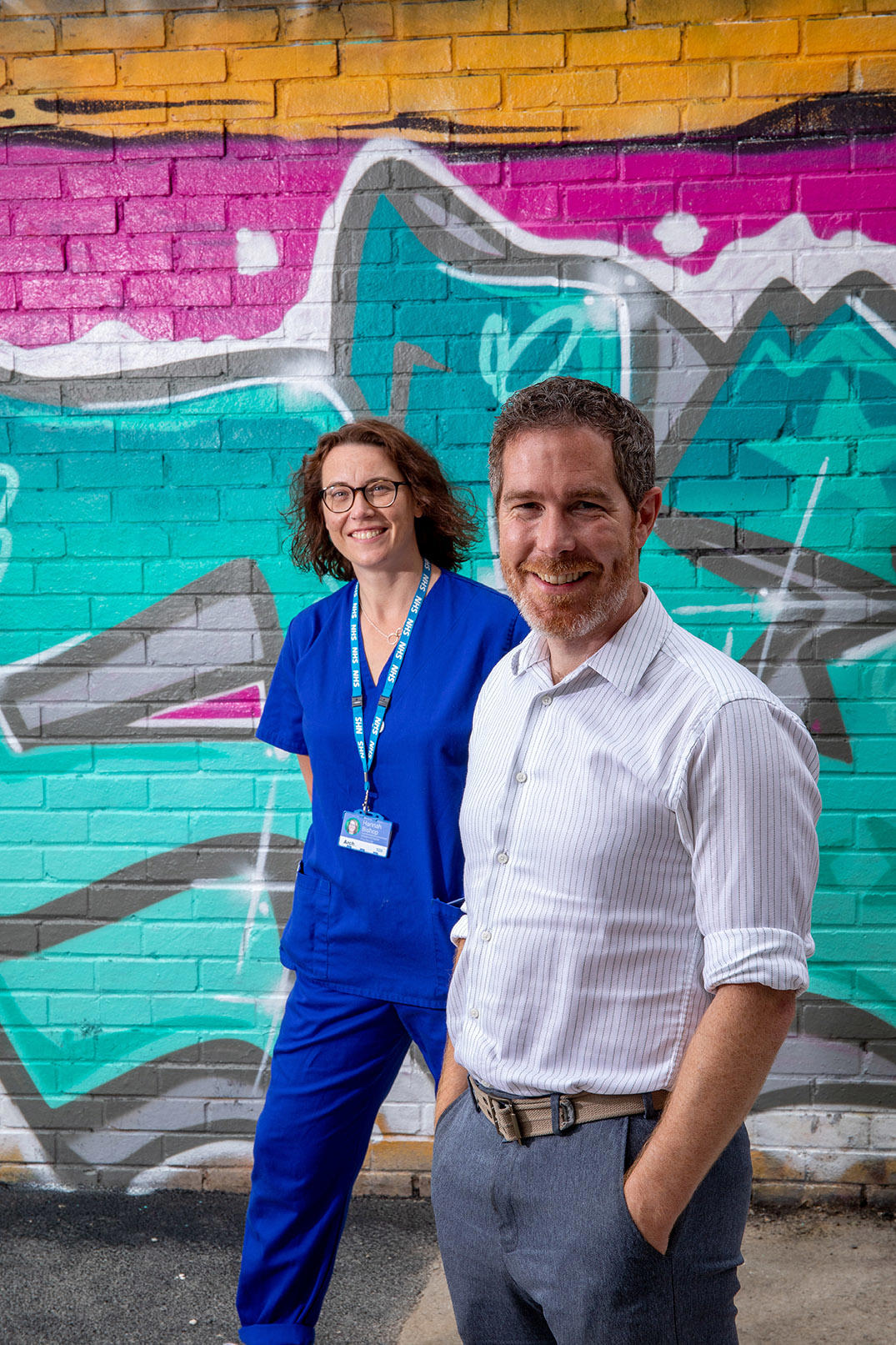 Nurse practitioner at Arch Hannah Bishop and Brighton GP Dr Worthley
Nurse practitioner at Arch Hannah Bishop and Brighton GP Dr Worthley
Perhaps that oft-repeated maxim – ‘the true measure of any society can be found in how it treats its most vulnerable members’ – is something the NHS and this Government should take to heart.
As Dr Worthley says: ‘It’s a horrible feeling to think that people are placed in temporary or emergency accommodation or are hiding away somewhere sleeping rough and they are frightened, not knowing who to get health advice from, who to get the vaccine from, and not knowing whether to trust the vaccine.
‘It’s deeply sad. It’s not a personal choice people are making to hide away or be distrustful or isolated – it’s a consequence of what they have experienced in their life to this date. It’s incredibly frustrating and saddening that as a society we still have not recognised the importance of righting those wrongs and improving these people’s lives.’

